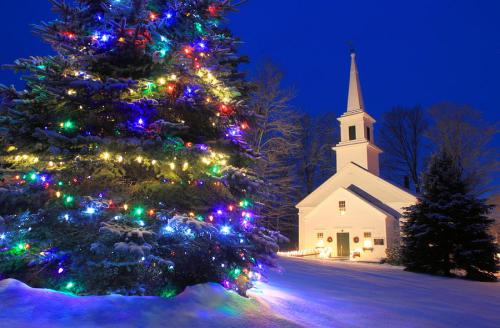Whereas ye know not what shall be on the morrow. For what is your life? It is even a vapour, that appeareth for a little time, and then vanisheth away. For that ye ought to say, If the Lord will, we shall live, and do this, or that. (James 4:14-15)
At this time of year, we reminisce about the past year. If one is of the contemplative sort, one might assess past failures and successes and consider how one might diminish the former and capitalize on the latter. Then, facing the coming year, we plan for improved outcomes in the year ahead.
Many have noted the number of the coming year, 2020. We associate that number with clear, sharp vision. We all want to see 20/20, and if that is physically impossible, we attempt to make the correction by the use of corrective lenses. That works relatively well for physical vision, but what about those intangible things like the future? The future is always nebulous, obscure, and unpredictable. We can plan, but nothing can guarantee that our planned intentions will work out as we hoped. Sudden illness could strike. Calamity could assail us – a car accident, a natural disaster, loss of income, stock market crash, war, etc. We cannot tell what the future will bring.
Jesus’ half-brother advises: “Go to now, ye that say, Today or tomorrow we will go into such a city, and continue there a year, and buy and sell, and get gain: Whereas ye know not what shall be on the morrow” (James 4:13-14). James prompts us to consider, “For what is your life? It is even a vapour, that appeareth for a little time, and then vanisheth away” (James 4:14). We often arrogantly assume that we control our lives and our circumstances, but we delude ourselves when we think that way. We have no control over our lives and circumstances. Our lives, as James says, are but a vapor, like a morning fog that appears briefly and then dissipates with the warmth of the morning sun.
So, does that mean we should not plan ahead? As Paul would say, “God forbid!” We need to plan. In laying out the cost of discipleship (Luke 14:27-33), Jesus said, “For which of you, intending to build a tower, sitteth not down first, and counteth the cost, whether he have sufficient to finish it? … Or what king, going to make war against another king, sitteth not down first, and consulteth whether he be able with ten thousand to meet him that cometh against him with twenty thousand?” (Luke 14:28, 31). Planning is wise and setting goals is prudent.
However, making plans without including God in one’s planning is presumptuous. Jesus gave the example of a rich man who had a bumper crop and wondered what to do with the abundance (Luke12:16-21). In his presumption, he thought of building bigger barns to store his crops and retiring to a life of leisure. “But God said unto him, Thou fool, this night thy soul shall be required of thee: then whose shall those things be, which thou hast provided?” (Luke 12:20). That’s the point James makes when he says, “For that ye ought to say, If the Lord will, we shall live, and do this, or that” (James 4:15, emphasis mine). Go ahead and make your plans, but remember that failure or success is in the Lord’s hands, “if the Lord wills.” The saying in Spanish is “Primero Dios” – God first!





